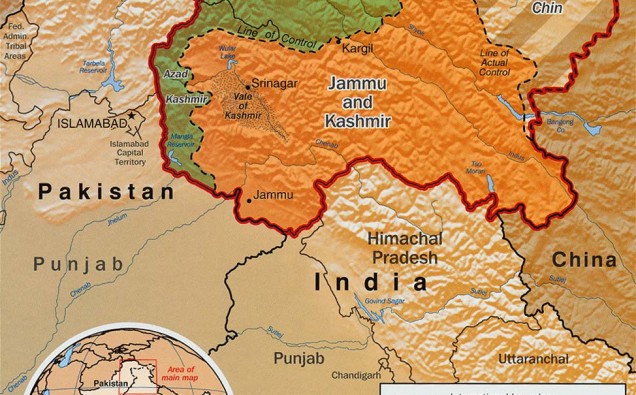
While Indian Prime Minister Narendra Modi’s brief sojourn to rival Pakistan surprised most, if not all, the weekend terrorist attack on an Indian air force base should not surprise anyone.
Violence has been used in the past to disrupt efforts for peace by the South Asian nations, which have lived every single moment of their existence nurturing hatred and distrust for each other. After renewed efforts for peace, the attack on the base in Pathankot in the Indian state of Punjab was thus always an ugly probability.
The initial suspicion fell on Lashkar-e-Taiba, a Pakistan-based militant group that India blames for attack on its commercial capital of Mumbai in 2008 that killed 166 people and wounded more than 300.
But, the United Jihad Council, an umbrella militant organization fighting Indian rule in Kashmir, claimed the responsibility of the attack, which, its spokesman said, was “a message by the Mujahideen (militants) that no sensitive installation of India is out of our reach”.
The UJC comprises over a dozen militant groups or so which operate on both sides of the Line of Control, a de fecto border that divides Kashmir between Pakistan and India, who both claim the entire ownership of the Himalayan state.
Both countries have betrayed caution in the immediate aftermath of the attack, but either has done nothing to reassure the Jan 15 talks between their top diplomats will go as planned, made possible after Modi’s unscheduled stopover to extend birthday wish to his Pakistani counterpart Nawaz Sharif on the Christmas Day.
One could only hope these talks stay on track, unlike many a times in the past when such attacks lured decision-makers to do exactly what they were meant to do – abandon the process of negotiations.
It took three years for the two countries to re-launch a tentative peace process in 2004 after a terrorist attack on the Indian parliament in 2001 brought the two nuclear powers on the brink of a fourth war. That process came to a halt again in 2007 after the bombing on Samjhauta Express by Hindu extremist groups that killed 68 mostly Pakistani citizens.
The Mumbai attack, a year later, froze the dialogue process for another three years and was revived only after the “cricket diplomacy” between the then prime ministers of the two countries. Border clashes that intensified in 2013 and continued in 2014 prevented any serious move towards reconciliation.
The oscillating nature of peace process means the two countries take one step forward and two steps backward in dealing with a host of issues bedeviling their ties, Kashmir being on the top.
The United States, which has strategic stakes in normalization of relations between Pakistan and India, has asked the two countries to not let the Pathankot attack obstruct the peace moves once again and treat the threat of terrorism as a “shared challenge”.
“We strongly encourage the governments of both Pakistan and India to remain steadfast to their commitment to a more secure and prosper future for both their countries and the region,” U.S. State Department spokesman John Kirby said at a Jan. 4 briefing. A stable South Asia is also critical to U.S efforts to stabilize Afghanistan.
Some analysts link the recent thaw in relations as a result of recent visits by Modi, his Pakistani counterpart and his army chief Gen. Raheel Sharif to the United States which the Obama administration used to push for resumption of the stalled dialogue process. Modi’s visit, the first by any Indian Prime Minister in 12 years, paved the way for the Jan. 15 talks.
If held as scheduled, the meeting between the foreign secretaries of the two countries will send a strong signal to those who still believe in the instrument of violence to achieve political victory.
The renewed efforts are also significant in the sense that it seemed to be backed by the Pakistani army, which had remained skeptical of India’s intent to make peace with Islamabad in the backdrop of New Delhi’s growing stature in Afghanistan and its alleged involvement in instigating, or at least fueling, an insurgency in the western Baluchistan province. Analysts have taken the appointment of a recently retired general as the National Security Adviser as an indication Gen. Sharif was on board this time.
With such positive vibes, any postponement of talks would be another opportunity wasted.














